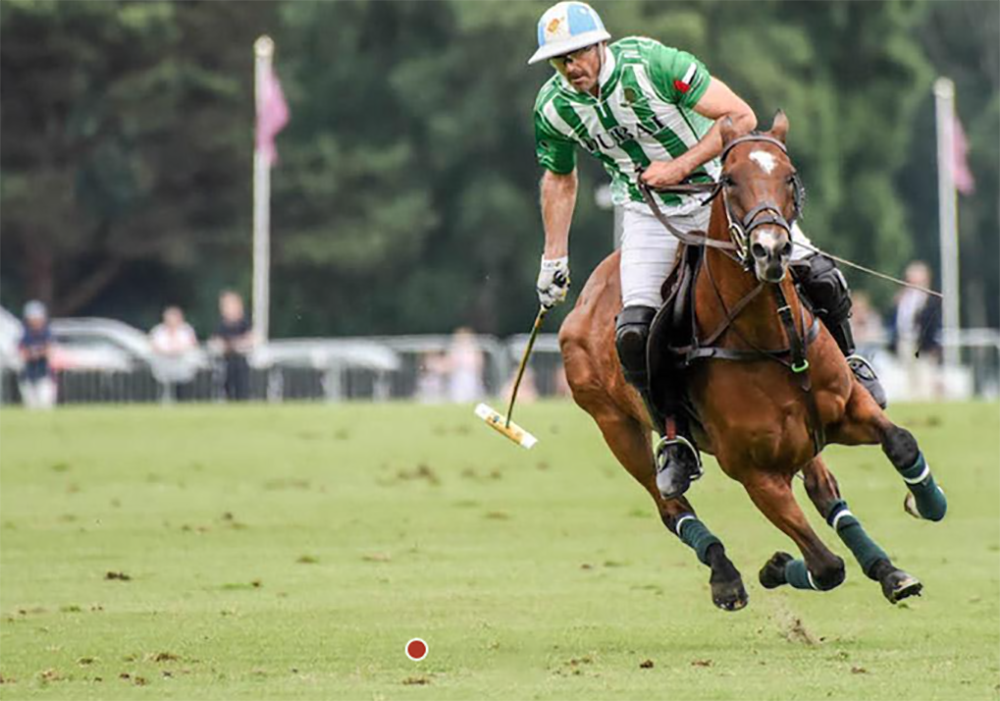Graduating from Texas Tech in 2014 with a Bachelor of Science in Animal Science, Samantha Huffman, a polo player and PhD candidate is seeking to learn more about the sport of polo through the lens of academia. Developing “Spot the Ball: A Study of Situation Awareness in Athletes,” Huffman hopes to give more academic attention to the sport she loves. She also played intercollegiate polo for Texas Tech Polo Club (2011-2014) and worked for the Southern Methodist University (SMU) Polo Club in Kaufman, Texas, from 2016 to 2019. Learn more about the study and how to participate below.
“Field awareness” or the more formally known situation awareness is “knowing what is going on around you.” Field awareness allows polo players to make good plays and score goals while keeping themselves, fellow players, and ponies safe. In a broader sense, athletes of all sports use situation awareness in a similar fashion. It has been suggested by researchers and sports practitioners alike that experience in a particular sport provides high-level athletes with heightened situation awareness. Many people have seen high-goal players carry the ball through traffic, avoid a last-second hook, and send the ball over the end line, and then wonder, “how did they do that?” The short answer is horsemanship, ball-handling abilities, and situation awareness.

During the test participants will be asked to place a red dot where they think the ball would be.
Situation awareness is defined as the perception of environmental cues, comprehension of their meaning, and projection (prediction) of the future state of the environment. There are three hierarchical levels to situation awareness: perception, comprehension and projection. Projection skills, or predicting how events will unfold, is a sign of expertise. Experienced athletes often have better projection skills compared to their novice counterparts. While perception, comprehension, and projection are the main tiers, there are other skills involved in gaining situation awareness. Psychologists and sports researchers have argued that situation awareness is a combination of cognitive skills such as attention, visual search behaviors, and anticipation that ultimately leads to decision making. As a cognitive psychologist and polo player, Huffman is interested in how players are able to gain and use situation awareness.
As most people know, the polo ball is very small and the polo field is very large. The ponies and the ball both move very quickly, and thus create ample opportunities for the ball to get lost. How many times do players lose the ball under a pony, or the sun glare hits just right that the ball disappears in the air? Players cannot just stop and look for the ball—do so, and that pesky high-goaler has already scored by the time they find the ball again. Therefore, polo players must use cues from their fellow players who are easier to track than the ball.
Huffman and her research team have developed a 15-minute static image “Spot the Ball” game that presents athletes of different sports with several sporting images where the ball has been digitally removed. Athletes view the images and click where they believe the missing ball to be. The “Spot the Ball” game is a simple, yet challenging test that will identify if environmental cues can be used to predict where the missing ball is on a still image. This is an important step in identifying how athletes gain situation awareness through their perception and comprehension of significant cues and then use that knowledge to project future states of the environment.
Polo is under-represented in many scientific and academic fields. There are significant gaps in academic knowledge surrounding polo, particularly from a psychology standpoint. Huffman is fortunate in her position as a PhD researcher and polo player to be able to fill in some of those gaps. By taking part in this study, you will personally help to shine a research spotlight on the sport of polo. The “Spot the Ball” test takes approximately 10-15 minutes.TAKE THE TEST NOW
For more information about the project, please do not hesitate to contact a member of the research team.
Principle Investigator: Samantha Huffman
Department of Psychology
Nottingham Trent University
Nottingham, United Kingdom
NG1 4FQ
samantha.huffman2014@my.ntu.ac.uk
Supervisor: Dr. Andrew Mackenzie
Department of Psychology
Nottingham Trent University
Nottingham, United Kingdom
NG1 4FQ
andrew.mackenzie@ntu.ac.uk
